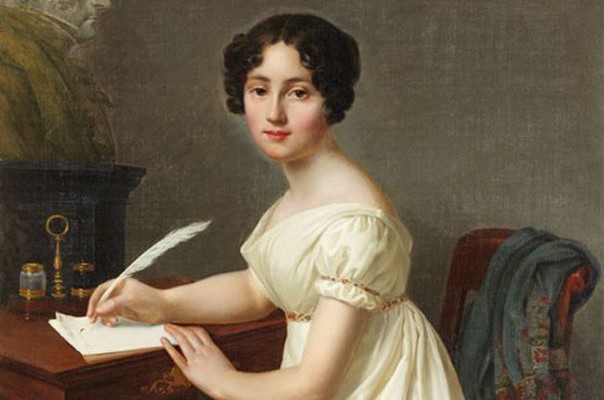
One of the most well-known writers in English literature is Jane Austen (1775–1817). Austen is well-known for her incisive social criticism and skillful narrative, and her books continue to enthrall readers everywhere. Her books provide timeless insights into human nature and relationships and are frequently marked by wit, romanticism, and a scathing critique of social conventions.

Early Life
Jane Austen was born on December 16, 1775, in Steventon, Hampshire, England. She was the seventh of eight children in a close-knit family. Her father, Reverend George Austen, was a clergyman, and her mother, Cassandra Leigh, came from a higher social standing. Jane and her siblings enjoyed a stimulating intellectual environment; her father’s extensive library provided ample inspiration for her early writing.
Literary Career
Austen began writing as a teenager, creating playful works that showcased her talent for satire and storytelling. Her novels were largely set in the world she knew best—the landed gentry and upper-middle-class society of rural England.
Major Works
- Sense and Sensibility (1811): Austen’s first published novel explores the contrast between rationality and emotion through the lives of the Dashwood sisters.
- Pride and Prejudice (1813): Perhaps her most famous work, this novel revolves around Elizabeth Bennet and Mr. Darcy, highlighting themes of pride, prejudice, and personal growth.
- Mansfield Park (1814): A more complex narrative that examines morality, family, and class dynamics.
- Emma (1815): Featuring the endearing yet flawed protagonist Emma Woodhouse, this novel humorously explores themes of matchmaking and self-awareness.
- Northanger Abbey (1817, posthumously published): A satirical take on Gothic novels, it follows the adventures of Catherine Morland.
- Persuasion (1817, posthumously published): A poignant tale of love and second chances, it reflects Austen’s maturity as a writer.
Themes and Style
Austen’s novels are celebrated for their realism and nuanced exploration of themes such as love, marriage, class, and morality. Her sharp observations of social behavior and masterful use of irony add depth to her works. Though her stories often include romantic elements, Austen’s real focus is the moral and emotional growth of her characters.
Legacy
Jane Austen passed away on July 18, 1817, at the age of 41, possibly due to Addison’s disease or lymphoma. She was buried in Winchester Cathedral. Though her novels were modestly successful during her lifetime, they gained immense popularity posthumously. Today, Austen’s works are hailed as literary classics, inspiring numerous adaptations for film, television, and stage.
Her influence extends beyond literature; Austen is celebrated as a pioneer who challenged and refined the novel form, offering a vivid portrayal of Regency-era England. Modern readers and scholars continue to draw lessons from her works, ensuring her legacy endures.
In a world where society and relationships remain as complex as ever, Jane Austen’s keen insights remain relevant, making her a timeless figure in the literary canon.










